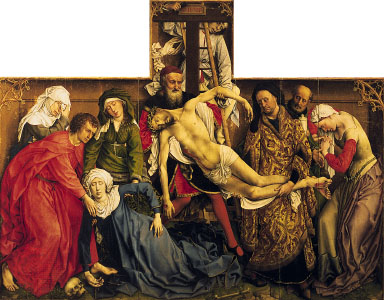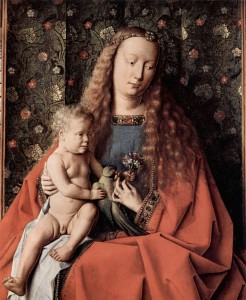I’m about to wade into theology here, so feel free to beat me around the head (politely, of course), if I’ve committed some egregious doctrinal sin. Before you do, though, please follow my argument to its conclusion, to see whether I’m on the right track.
I got to thinking about evil today. In my earlier post, I took it upon myself to define what I believe constitutes good (as opposed to evil) at a societal level: Maximum individual freedom within a framework of stable laws. What I want to discuss in this post is the evil of the individual, whether it’s just a handful of individuals committing acts of great evil, or evil on the vast scale of Stalin, Hitler, Mao or Kim Jung-Il (as well as their minions, who kept the leaders’ hands free of actual blood).
As I contemplate evil men, what always strikes me is that they are distinguished from “merely” bad people by the way in which they view their fellow man. Your ordinary bad guy is motivated by greed, fear, anger, jealously, etc. His own feelings drive him. He’s not thinking about the relative worth of the people against whom he acts. He’s simply thinking about his own needs.
People who commit evil on a grand scale, whether their victims are small in number or large, may fall prey to these passions, but these all too human emotions are not what drive them. Instead, they commit their evil acts because they feel separate from and above ordinary humanity. In their own minds, they are a superior species, a pleasant fact that entitles them to starve the kulaks, kill the Jews and gypsies, or turn their own nation into a giant prison camp. The root cause of evil isn’t an unloving mother or a bourgeois upbringing or a racist society. Instead, it is the evildoer’s fundamental lack of humanity.
Which gets me to the birthday the Christian world celebrates on December 25. Christ was not like other gods. The Greek and Roman panoply of gods was filled with beings who, while they suffered from more than their fare share of human foibles, nevertheless were always aware of their separation from mankind, and treated mankind as pawns in the godly games. Christ, however, embraced human-kind. His passion was the human passion. Rather than rejecting human-kind, he took upon himself human pain and, in return, gave grace. By giving himself over to humanity, rather than holding himself above it, Jesus was the antithesis of evil.
(To those of you who are hoping I’ve converted, I haven’t. If there is any religion in me, my allegiance is to the Jewish God, an abstract, overarching figure that created human-kind, embraces His creation, and judges human-kind with a creator’s loving objectivity. To my mind, both good and evil are concepts too small to describe the enormity of the Jewish God.)
So, while I am not now, and probably never will be, a Christian, I join with all of you in celebrating Christmas — a holiday that truly celebrates the good in all of us.
Merry Christmas!

